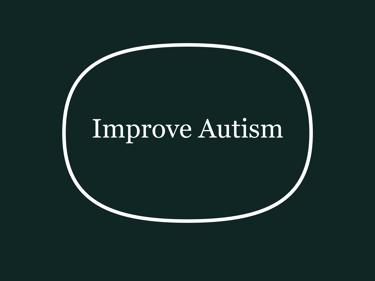The role of probiotics in children with autism spectrum disorder: A prospective, open-label study
Authors:
Shaaban, S.Y., El Gendy, Y.G., Mehanna, N.S., El-Senousy, W.M., El-Feki, H.S., Saad, K. and El-Asheer, O.M.
Summary of the Study
The study was a prospective, open-label trial aimed at evaluating the efficacy and tolerability of probiotics in 30 Egyptian children with ASD, aged 5 to 9 years, compared to 30 healthy controls. The autistic children received a daily dose of 5 grams of a probiotic powder (containing Lactobacillus acidophilus, Lactobacillus rhamnosus, and Bifidobacteria longum) for 3 months. The key objectives were to assess changes in GI symptoms, autism severity, gut microbiota, and body weight.
Key Findings:
GI Symptoms: Significant reductions in constipation, stool consistency issues, flatulence, and abdominal pain were observed, as measured by the 6-GSI.
Autistic Symptoms: A significant decrease in ATEC scores indicated improvements in communication, sociability, sensory awareness, and behavior.
Gut Microbiota: Increased levels of beneficial bacteria (Bifidobacteria and Lactobacilli) were found in the stool post-supplementation.
Body Weight/BMI: Overweight children experienced significant reductions in weight and BMI.
Correlation: Improvements in GI symptoms strongly correlated with reductions in autism severity, supporting the gut-brain axis hypothesis.
Number of Participants
Autistic Group: The study included 30 children diagnosed with autism spectrum disorder (ASD), consisting of 19 boys and 11 girls, aged 5 to 9 years.
Control Group: There were 30 gender- and age-matched healthy children used as a comparison group.
Type of Probiotic and Administration
Probiotic Formula: The children with ASD received a powder composed mainly of dried carrot mixed with three probiotic strains:
Lactobacillus acidophilus
Lactobacillus rhamnosus
Bifidobacteria longum
Dosage: Each child was given 5 grams of the powder daily, with each gram containing 100 × 10^6 colony forming units (CFU) of the three probiotic strains.
Frequency: The probiotic was administered once daily.
Duration: The supplementation lasted for 3 months.
Improvements Observed
After 3 months of probiotic supplementation, the study reported several significant improvements in the autistic children:
Gastrointestinal (GI) Symptoms:
Assessed using a modified six-item Gastrointestinal Severity Index (6-GSI) questionnaire.
Findings: There was a significant improvement in the total 6-GSI score, with specific reductions in:
Constipation
Abnormal stool consistency
Flatulence
Abdominal pain
These improvements indicate better gut health following probiotic use.
Autistic Symptoms:
Measured using the Autism Treatment Evaluation Checklist (ATEC).
Findings: The total ATEC scores significantly decreased, suggesting a reduction in the severity of autism symptoms. Improvements were observed across all four ATEC subscales:
Speech/language/communication
Sociability
Sensory/cognitive awareness
Health/physical/behavior
This indicates a broad positive impact on behavioral and developmental aspects of ASD.
Gut Microbiota:
Assessed via quantitative real-time PCR of stool samples.
Findings: Before supplementation, autistic children had significantly lower levels of Bifidobacteria compared to the healthy controls. After 3 months of probiotics:
There was a significant increase in colony counts of Bifidobacteria and Lactobacilli in the stool.
This suggests that the probiotics successfully altered the gut microbiota composition in a beneficial way.
Body Weight and BMI:
Findings: At the start, 60% of the autistic children were overweight. After 3 months of probiotic supplementation:
These children showed a significant decrease in body weight and body mass index (BMI).
This indicates a potential role of probiotics in managing weight in overweight children with ASD.
Duration of the Study
The probiotic supplementation was administered for 3 months, with assessments conducted before and after this period to evaluate changes in GI symptoms, autistic symptoms, gut microbiota, and body weight/BMI.
Conclusions: The study suggests that probiotics may serve as a beneficial, non-pharmacological adjuvant therapy for children with ASD, improving both GI and behavioral symptoms while positively influencing gut microbiota and body weight. However, the authors highlighted limitations, including the small sample size, open-label design (no blinding), lack of a placebo group, and concurrent behavioral therapy, which may have influenced the results. They recommend larger, randomized controlled trials to confirm these findings.
https://pubmed.ncbi.nlm.nih.gov/28686541/
doi: 10.1080/1028415X.2017.1347746


